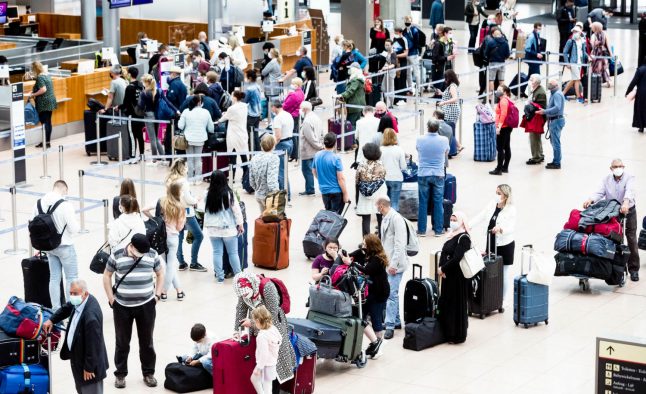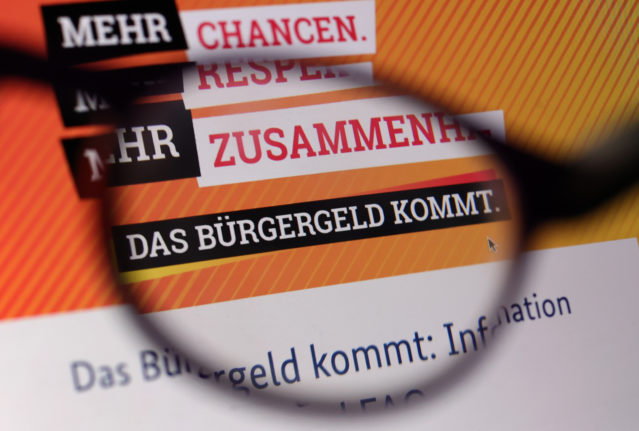What are current quarantine rules?
In Germany, individual states are responsible for quarantine regulations. Although the rules are largely the same, there can be some small differences between states.
At the moment, upon entry to Germany from a risk area, whatever the mode of transport, the general rules are:
- You must go directly to your destination following entry into Germany (this can be done after a test – see below)
- You have to self-isolate at home until a negative test result is available
- Provide proof of the negative test result to the authorities (the health office or Gesundheitsamt).
- Notify the health office by email or phone in your place of residence/accommodation.
You do not have to self-isolate at home if you are travelling through Germany. However, that means you do of course have to leave the country immediately (to get to your destination).
A stay in a risk area means that you stayed in the area concerned at any point within the 14 days prior to entry to Germany.
If you can prove that you are not infected with Covid‑19, no quarantine is necessary in most states, However, some states require you to take another test after a few days.
This proof must take the form of a medical certificate. The test must have been carried out more than 48 hours prior to entry, and carried out in an EU member state or a state with comparable quality standards.
READ ALSO:
- Can I travel in Germany in November?
- Seven things you need to get right if you're travelling to Germany from a risk area
Test on arrival
The Covid-19 test can also be taken on arrival into Germany.
So you can do it at the airport, for example, or in the area you are staying.
The test is free for travellers from risk areas up to 72 hours after entry
What's new then?
The states now have to issue new quarantine regulations which must be in force by November 8th. Some states have already introduced this regulation. Initially it was to be a nationwide rule in October but the date was pushed back.
So from November 8th these are the new general rules:
- A stay in a 'risk zone 'means you stayed in the area concerned at any point within 10 days prior to entry to Germany
- After arriving at your destination in Germany, you must self-isolate at home for 10 days (this is mandatory)
- If no other grounds for exception apply (such as if you are an essential worker) you may only be released from the obligation to quarantine at home – no earlier than five days after entering Germany– if you provide proof of a negative test result. So a test can be taken five days into the quarantine at the earliest.
The regulations will be implemented by the states so you should check with the area you're going to before travelling.
READ ALSO: What you need to know about changes to travel and quarantine rules in Germany
Countries or regions are declared risk regions when there have been more than 50 new cases per 100,000 citizens in the past seven days.
The decision is made by the Federal Foreign Office, the Interior Ministry, the Health Ministry and the RKI.
Other factors are taken into account such as which measures are being taken to halt the spread of Covid-19, if it's a local or widespread outbreak plus testing strategies and rules in place such as hygiene or contact tracing.
A list of the regions considered risk areas can be found on the RKI website, which is updated regularly.
Helpful websites for each state:
- Corona-Information for Baden-Württemberg
- Corona-Info Bavaria
- Corona-Info Berlin
- Corona-Info Brandenburg
- Corona-Info Bremen
- Corona-Info Hamburg
- Corona-Info Hesse
- Corona-Info Mecklenburg-Western Pomerania
- Corona-Info Lower Saxony
- Corona-Info North Rhine-Westphalia
- Corona-Info Rhineland-Palatinate
- Corona-Infof Saarland
- Corona-Info Saxony
- Corona-Info Saxony-Anhalt
- Corona-Info Schleswig-Holstein
- Corona-Info Thuringia
Please keep in mind that this article, as with all of our guides, are to provide assistance only. They are not intended to take the place of official legal advice. If you found this helpful or you have any questions we can try and answer, email us: [email protected]




 Please whitelist us to continue reading.
Please whitelist us to continue reading.
The Hesse link doesn’t open correctly.